Apple Event Highlights: iPhone Xs, iPhone XR, and Apple Watch 4
Here's everything Apple announced at its big September 2018 iPhone event.
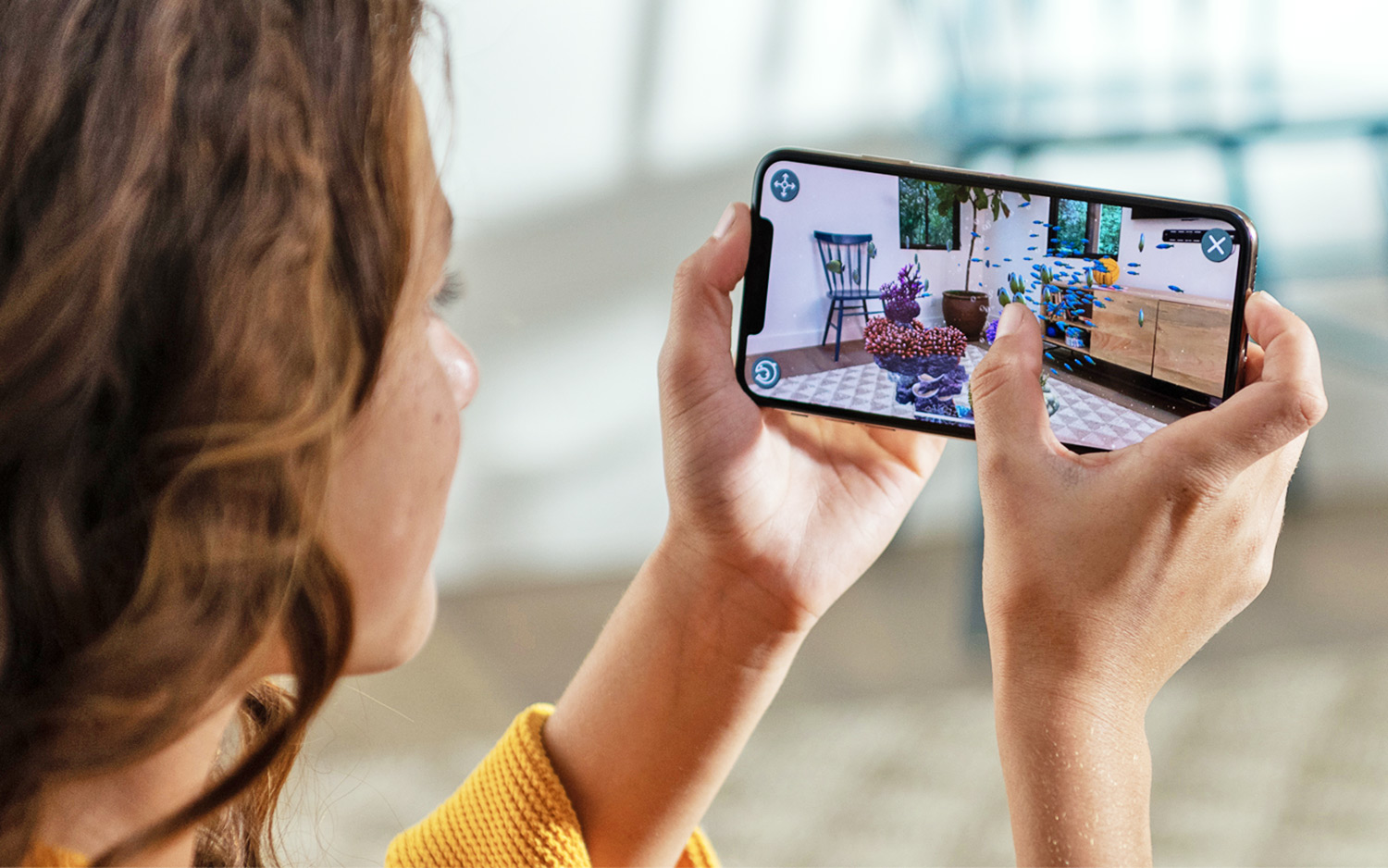
Apple has once again taken to its Steve Jobs Theater in Cupertino to show off the iPhone Xs, iPhone XR, Apple Watch Series 4 and a few other surprises.
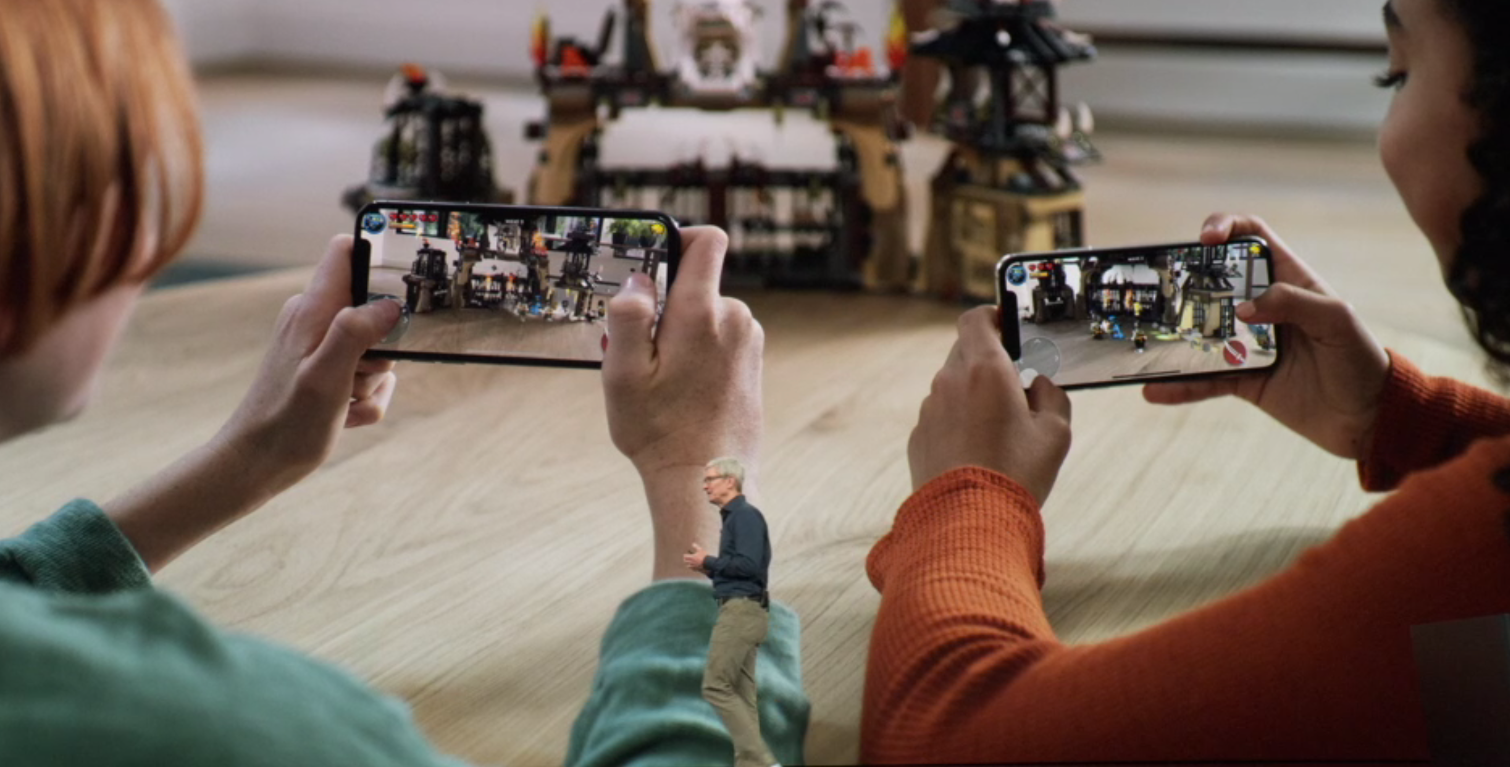
Here are the biggest announcements from the show.
iPhone Xs and Xs Max: Most advanced iPhones ever
Apple officially took the wraps off it its iPhone Xs and Xs Max, which Tim Cook calls "the most advanced iPhone we have ever created."
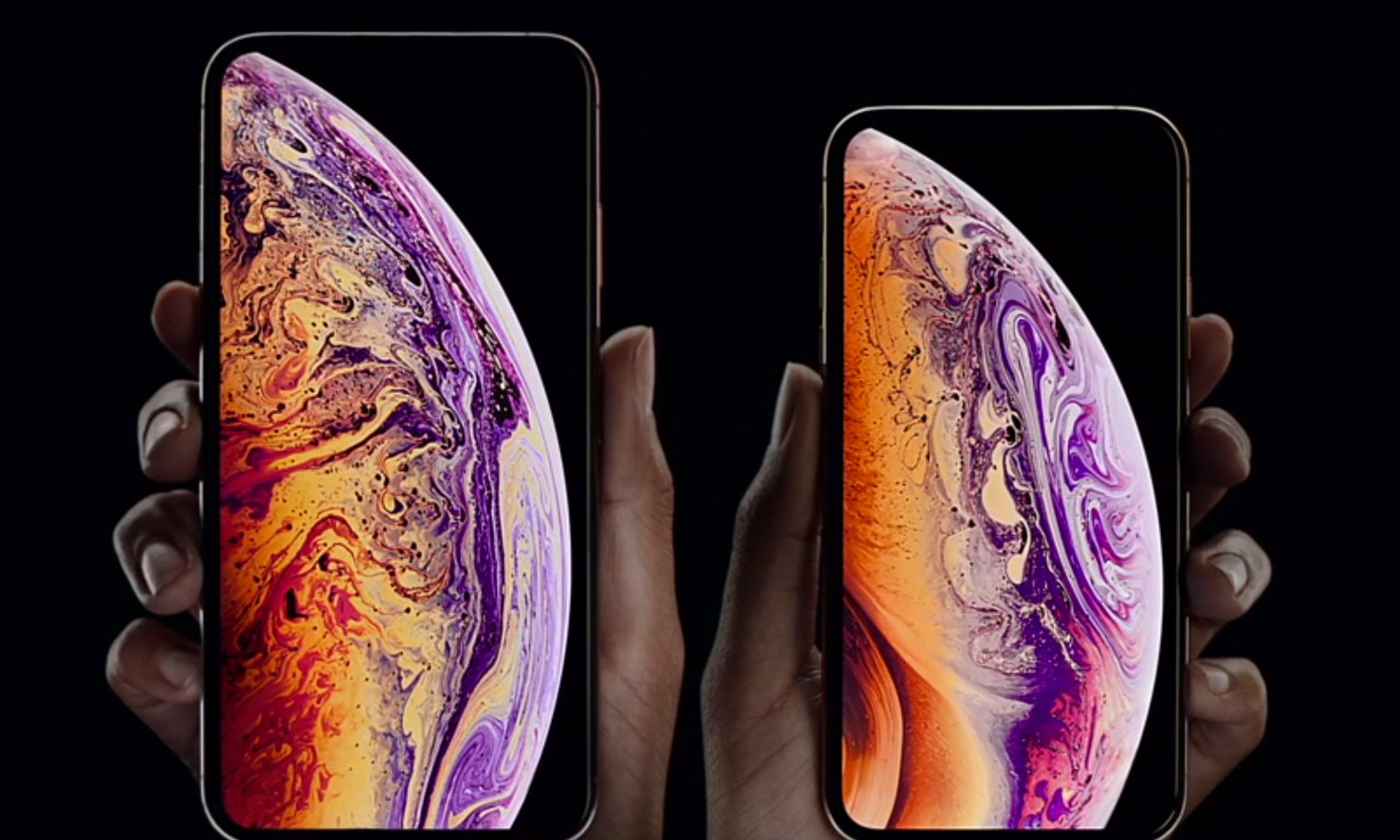
The handset very much looks like an upgraded iPhone X, sporting a stainless steel design and 5.8-inch and 6.5-inch Super Retina OLED displays, the latter of which is the biggest to ever be on an iPhone. As expected, the phones will now come with up to 512GB of storage, up from the 256GB max on last year's models. The phone also packs improved sensors for faster Face ID functionality.
Powering the Xs and Xs Max is Apple's new A12 bionic processor, which is up to 50 percent faster than previous iPhone generations, and sports a neural engine that can process up to 5 trillion operations per second. The processor helps apps launch up to 30 percent faster.
The iPhone Xs and Xs Max feature improved dual 12-megapixel cameras, with better True Tone sensors and fast 1.8 aperture lenses. In the front, you're getting a 7-MP TrueDepth sensor that's twice as fast as previous versions. The phone's new Smart HDR feature promises zero shutter lag, using a variety of buffers to make sure you get the best version of your subject the second you tap the shutter button. When taking portrait mode shots, you'll now be able to adjust the depth of field from the Photos app.
Sign up to get the BEST of Tom's Guide direct to your inbox.
Get instant access to breaking news, the hottest reviews, great deals and helpful tips.
Apple says that the iPhone Xs will offer 30 minutes more battery life than the iPhone X, while the Xs Max will serve up to 90 more minutes of juice than last year's model. Both phones will finally bring Dual SIM card support to the iPhone family.
The iPhone Xs and Xs Max will be available in 64GB, 256GB and 512GB configurations, and will be available for pre-order on Sept. 14 before shipping on Sept. 21. The Xs will start at $999, while the Xs Max will start at $1,099.
iPhone XR: Fun colors, Liquid Retina display
Joining the Xs and Xs Max will be the iPhone XR, a lower-cost model that comes in a variety of fun colors including blue, coral, yellow and red. The phone sports a 6.1-inch edge-to-edge LCD display (which Apple dubs "Liquid Retina") that sports a notched design and provides more overall screen space than the iPhone 8 Plus.
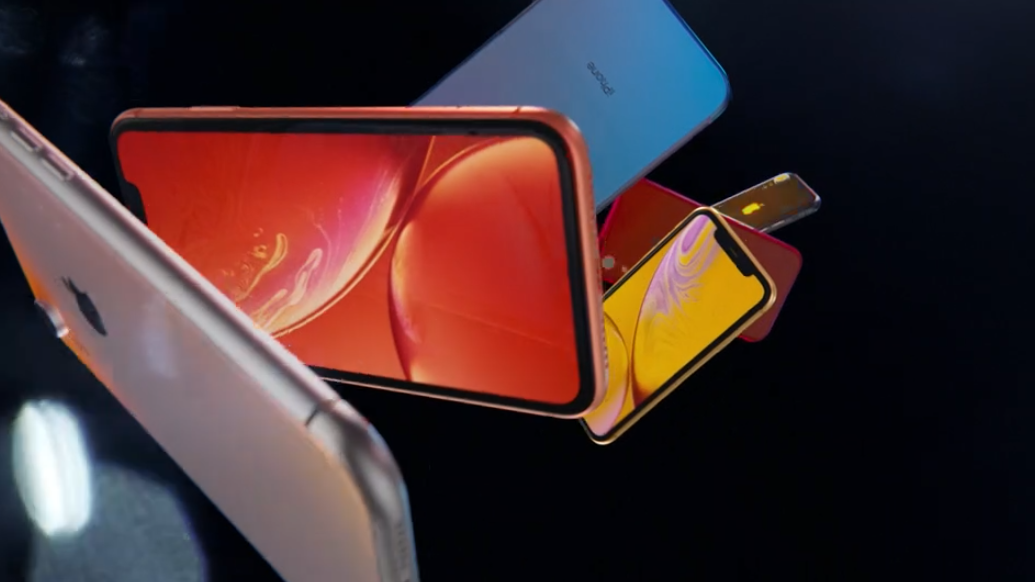
The XR sports Face ID support, and while it lacks 3D touch, it will sport a new Haptic Touch feature that will allow you to open select apps right from the home screen with a long press. It's powered by the same A12 Bionic chip as the iPhone XS, and packs a single 12-MP wide angle camera with optical image stabilization and portrait mode capabilities (yes, from a single lens). The phone promises 90 more minutes of battery life than the iPhone 8 Plus.
The iPhone XR will come in 64GB, 128GB and 256GB configurations, and will start at $749. The phone will be available for pre-order on Oct. 19, and is set to ship a week later on Oct. 26.
Apple Watch Series 4: Bigger display, fall detection and more
Apple took the wraps off of its long-rumored Apple Watch Series 4, which features a revamped design and an edge-to-edge display that lets you see more content at once. While the new Watch models are thinner, Apple says they also have larger screens, providing displays that are over 30 percent larger than those of the Series 3.
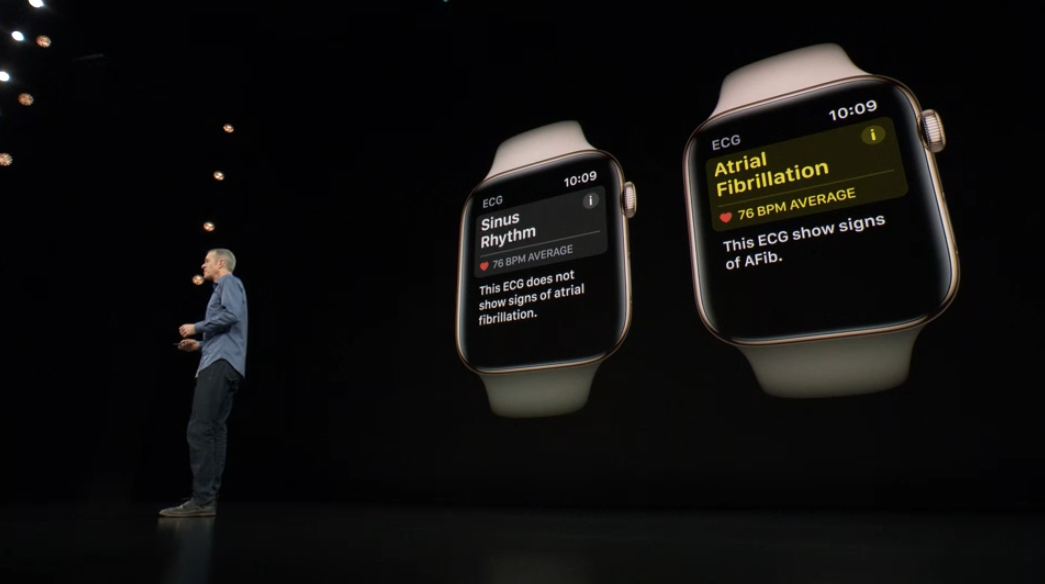
This bigger display will allow for richer, more customizable watch faces, which you can outfit with new complications including your favorite contacts and multiple time zones. Apple Watch Series 4 boasts a speaker that is 50 percent louder as well as a better microphone. The watch also packs an improved accelerometer and gyroscope with twice the dynamic range, which allows the new wearable to do things such as detect when you've fallen down -- and start an emergency call if you can't get up.
The Watch Series 4 can also send notifications if your heart rate is too low, screen your heart for atrial fibrilation, and even provide an electrocardiogram (ECG) -- the first over the counter consumer device to do so. Despite all this extra tech, Apple promised that the Watch Series 4 will offer the same 18-hour battery life as the previous generation.
The Apple Watch Series 4 will be available for pre-order on Sept. 14 and launch on Sept. 21, starting at $399 for the GPS model and $499 for the cellular option. The Series 3 will continue to be sold, now at a cheaper $279 starting price.
Other highlights: HomePod, Apple TV and macOS
Apple made a handful of small announcements outside of the big new iPhone and Apple Watch debuts. Apple's HomePod will soon gain stereo pairing support thanks to AirPlay 2, while Apple TV owners can look forward to Dolby Atmos support on a future TVOS update. If you're a Mac owner, know that the next big software update, macOS Mojave, is set to arrive on Sept. 24.
Apple also spent a fair amount of time talking sustainability and eco-friendliness, and announced its Apple Giveback program. This will allow you to donate your unwanted iPhones to Apple, who will then either refurbish it for a customer, or recycle it for future products.
Mike Andronico is Senior Writer at CNNUnderscored. He was formerly Managing Editor at Tom's Guide, where he wrote extensively on gaming, as well as running the show on the news front. When not at work, you can usually catch him playing Street Fighter, devouring Twitch streams and trying to convince people that Hawkeye is the best Avenger.

